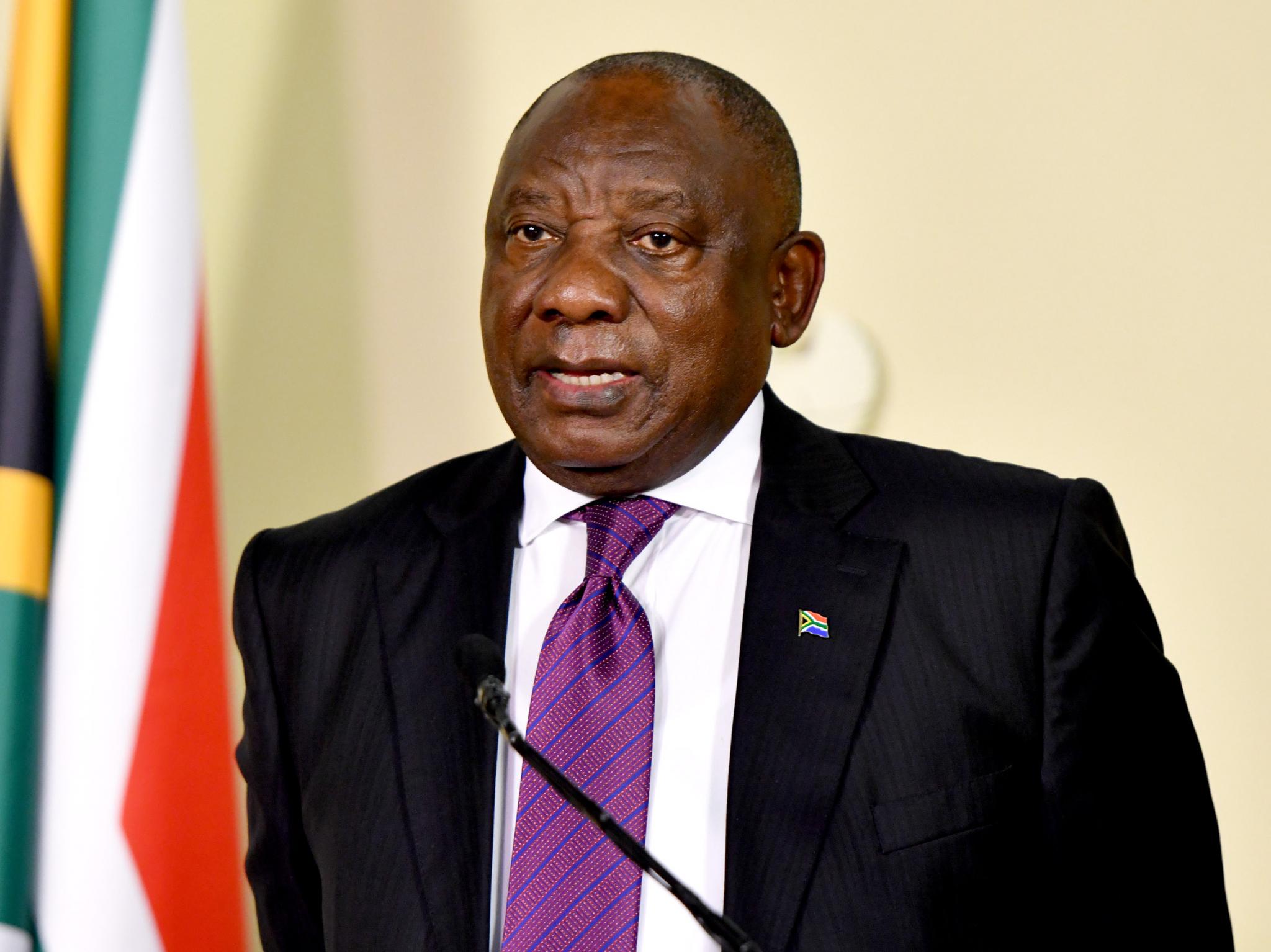Speaking from the Union Buildings on Tuesday evening, Ramaphosa said the idea of a national dialogue has been building momentum over the past year, gaining support from leaders across political, civil, religious, business and cultural sectors.
President Ramaphosa Announces National Dialogue to Reimagine South Africa’s Future

President Cyril Ramaphosa has officially announced the launch of a National Dialogue process aimed at bringing South Africans together to reflect on the state of the country and shape a collective vision for its future.
Speaking from the Union Buildings on Tuesday evening, Ramaphosa said the idea of a national dialogue has been building momentum over the past year, gaining support from leaders across political, civil, religious, business and cultural sectors.
“There is broad agreement that, given the challenges we face as a nation, we must convene a National Dialogue,” Ramaphosa said. “This will be a people-led, society-wide process to reimagine our future.”
A Tradition of Dialogue
Ramaphosa highlighted South Africa’s long history of resolving critical national issues through dialogue. From the fall of apartheid to the birth of democracy, negotiations and national conversations have been pivotal in shaping the country’s path.
“Through dialogue, we overcame apartheid, built a democracy and began the long work of reconciliation and reconstruction,” he said. “We now face a new moment that demands the same collective resolve.”
Facing Today’s Challenges
The President acknowledged that despite progress since 1994, South Africa remains plagued by persistent problems including high unemployment, poverty, inequality, gender-based violence, crime and corruption.
“Millions are unemployed or under-employed. Many workers earn wages that cannot support their families. These are deep wounds that hold our country back,” he said.
Ramaphosa emphasised the need to build an inclusive economy, create opportunities for youth, and ensure safety and dignity for all.
“We are called upon to give every South African – men and women, young and old, people with disabilities, LGBTQI individuals, and rural and urban communities – a voice in how we address our problems,” he added.
What the Dialogue Will Look Like
The National Dialogue will not be a single event, but rather a multi-phase process that unfolds over several months, starting with local and sectoral discussions and culminating in national gatherings.
The first major milestone will be a National Convention on 15 August 2025, convened by Ramaphosa himself. The convention will bring together representatives from across society – including government, political parties, labour unions, religious and traditional leaders, business, civil society, youth and cultural organisations – to set the agenda for the dialogue.
A second National Convention is expected in early 2026, where the outcomes of the dialogue will be consolidated into a common vision and a new social compact.
Eminent Persons Group Announced
To guide and champion the process, Ramaphosa has appointed an Eminent Persons Group made up of 35 prominent South Africans from diverse sectors. These include:
- Dr Brigalia Bam, former IEC Chairperson
- Judge Edwin Cameron, former Constitutional Court justice
- Dr Desiree Ellis, Banyana Banyana coach
- Mr Siya Kolisi, Springbok captain
- Dr John Kani, actor and cultural icon
- Prof Tinyiko Maluleke, Chair of the National Planning Commission
- Ms Lindiwe Mazibuko, former Member of Parliament
- Dr Imtiaz Sooliman, founder of Gift of the Givers
- Ms Kgothatso Montjane, Grand Slam tennis champion
- Mr Siyabulela Xuza, award-winning rocket scientist
UBaba uShembe uNyazi LweZulu has also been invited, though his participation is yet to be confirmed due to travel commitments.
“I am grateful to these patriots who have made themselves available to be the guarantors of an inclusive, constructive and credible process,” said Ramaphosa.
Government’s Role
To support the initiative, an Inter-Ministerial Committee, chaired by Deputy President Paul Mashatile, has been formed. A Steering Committee of sectoral representatives will oversee strategic direction, while the Secretariat responsible for day-to-day operations will be housed at NEDLAC (National Economic Development and Labour Council).
“This is a new path of partnership and united action,” Ramaphosa concluded. “We are drawing on our rich tradition of dialogue and debate to define a shared vision of a nation that belongs to all who live in it.”
The President’s announcement comes at a time of intense political and economic uncertainty, with many observers viewing the National Dialogue as an opportunity to renew the social contract and restore public trust in democratic institutions.
Subscribe to Our Newsletter
Keep in touch with our news & offers
Thank you for subscribing to the newsletter.
Oops. Something went wrong. Please try again later.










